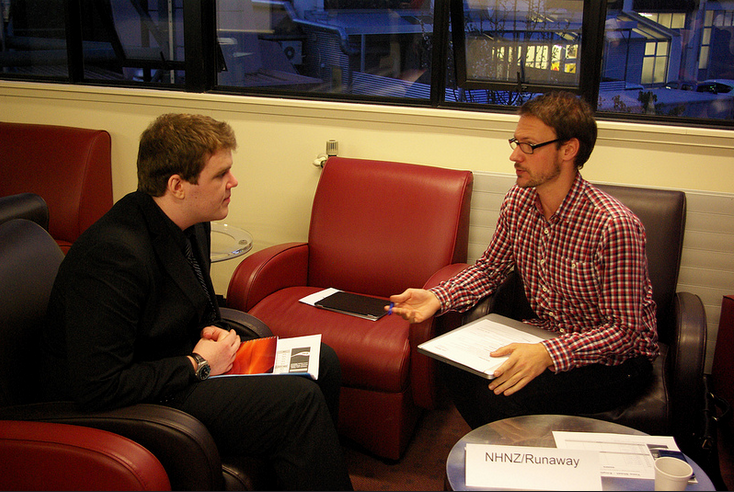I interview a lot people – applicants to Dreamit’s accelerator program, prospective employees, interns, etc. – and one of the questions I *never* ask is, “What is your biggest weakness?”
I’ve learned that you never get an honest answer. At best, it’s a test of the candidate’s negotiating skills as they try to figure out what the lowest ‘offer’ they can put on the table is that is just credible enough to keep the bidding going. At worst, it’s just an invitation to lie. But the real reason I never ask this question is, I already know the answer. In fact, your biggest weakness is the same as mine:
Our biggest weakness is the weakness we are not aware of.
We all have parts of our skill sets that are not as strong as others and we all have character traits which, while positive in some situations can be counter-productive in others. But since we know what these are, we generally have ways to compensate for them or even to neutralize them entirely.
If it is a set of skills that were lacking, we choose people with those skills to help round out our team. If it is a critical skill that we think we need to internalize, we take the time to find the resources we need to study up and get up to speed.
If we have a tendency to make quick decisions but are currently facing a complex problem that requires analysis to tease out all the possible repercussions, we put processes in place to make sure that we have examined the problem from every angle. Conversely, if we find that we tend to analyze problems extensively, we learn to recognize when we are in a fast-moving situation and create decision rules that ensure that we know when our analysis is good enough to make a decision so we don’t miss out on opportunities.
But if we are not even aware of the weakness…?
Recently, I screwed up. I was concerned about one of our recent tweets and I posted my feedback to our Slack channel. Read a certain way, it could have been perceived as critical of a colleague’s performance. I frequently discuss with entrepreneurs the importance of proofing emails by putting yourself in the shoes of the recipient to make sure there are no ambiguities or potential tone issues before hitting Send. I also caution all the Dreamit startups I work with that the speed and informality of social media can lead you to share info that you should really think twice about making public (or at the very least, phrase differently for public consumption). But the relative newness of Slack tripped me up. It feels fast and frictionlessness like texting or Twitter but is neither fully private nor fully public. Unlike email, you don’t initiate a post by entering the recipient’s email address or by selecting between Reply & Reply All; the path of least resistance is posting to the entire channel – effectively default Reply All – and you have to actively switch from the original channel to a different channel to direct message someone. In short, it felt familiar but functioned differently. I had a blind spot I didn’t know about… until the crash.
Fortunately, it was only a fender bender. My colleague pointed out what I’d done and I deleted the post. No lasting harm done.
But with the tools we use changing so rapidly, with the competitive landscape we operate in evolving so quickly, you have to wonder what other accidents are just waiting to happen.
So yeah, I already know your biggest weakness. Except that I don’t. And neither do you.
Image credit: CC by: Samuel Mann



